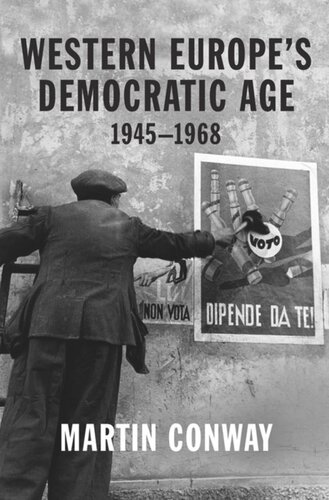

Most ebook files are in PDF format, so you can easily read them using various software such as Foxit Reader or directly on the Google Chrome browser.
Some ebook files are released by publishers in other formats such as .awz, .mobi, .epub, .fb2, etc. You may need to install specific software to read these formats on mobile/PC, such as Calibre.
Please read the tutorial at this link: https://ebookbell.com/faq
We offer FREE conversion to the popular formats you request; however, this may take some time. Therefore, right after payment, please email us, and we will try to provide the service as quickly as possible.
For some exceptional file formats or broken links (if any), please refrain from opening any disputes. Instead, email us first, and we will try to assist within a maximum of 6 hours.
EbookBell Team

4.4
32 reviewsA major new history of how democracy became the dominant political force in Europe in the second half of the twentieth century
What happened in the years following World War II to create a democratic revolution in the western half of Europe? In Western Europe's Democratic Age, Martin Conway provides an innovative new account of how a stable, durable, and remarkably uniform model of parliamentary democracy emerged in Western Europe—and how this democratic ascendancy held fast until the latter decades of the twentieth century.
Drawing on a wide range of sources, Conway describes how Western Europe's postwar democratic order was built by elite, intellectual, and popular forces. Much more than the consequence of the defeat of fascism and the rejection of Communism, this democratic order rested on universal male and female suffrage, but also on new forms of state authority and new political forces—primarily Christian and social democratic—that espoused democratic values. Above all, it gained the support of the people, for whom democracy provided a new model of citizenship, which reflected the aspirations of a more prosperous and aspirational society.
This democratic order did not, however, endure. Its hierarchies of class, gender, and race, which initially gave it its strength, as well as the strains of decolonization and social change, led to an explosion of demands for greater democratic freedoms in the 1960s, and to the much more contested democratic politics of Europe in the late twentieth century.
Western Europe's Democratic Age is a compelling history that sheds new light not only on the past of European democracy but also on the unresolved question of its future.